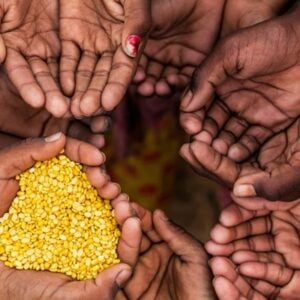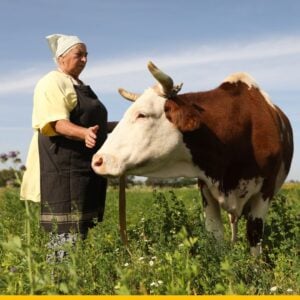Every year, millions of tons of food are lost before reaching consumers, with Morocco losing as much as half of its fruits and vegetables before they make it to market. This waste impacts farmers’ incomes, raises food prices for families, and contributes to climate change, as decomposing food in landfills releases methane, a greenhouse gas far more potent than carbon dioxide. A key underlying issue is the lack of cold storage infrastructure. Without reliable temperature-controlled facilities, perishable produce, meat, dairy, and vital medicines spoil quickly, undermining food security and public health.
To address this challenge, a major cold storage facility is being developed near Casablanca, transforming two outdated warehouses into a modern, climate-smart logistics hub. Once operational, the facility will handle up to a third of the city’s cold storage capacity. It will provide smallholder farmers, food producers, exporters, and pharmaceutical distributors with access to reliable storage, reducing food loss, enabling stronger export markets, and ensuring the safety of vaccines and medicines. For families, this means more affordable and consistent access to fresh food.
Cold storage also serves as a climate solution. By reducing post-harvest losses, the Casablanca facility prevents significant amounts of food waste from generating methane in landfills. The project incorporates energy-efficient insulation, rooftop solar, and natural refrigerants with low global warming potential, limiting its environmental footprint. Early estimates suggest annual reductions of 400 to 1,300 tonnes of CO2 emissions. Moreover, in Morocco’s water-stressed environment, where heatwaves, droughts, and erratic rainfall threaten harvests, cold storage extends the shelf life of perishable goods and protects farmers’ incomes, providing a crucial buffer against climate shocks. Similar projects are being explored in Senegal and other water-scarce regions, highlighting the potential for climate adaptation across Africa.
The Casablanca facility is the result of strong collaboration between public and private partners, including IFRIA Cold Chain Development, the Subnational Climate Fund managed by Pegasus Capital Advisors, and UNDP’s Platform for Investment Support and Technical Assistance (PISTA), funded by Italy’s Ministry of Environment and Energy Security. Through PISTA, the project receives technical guidance to enhance social and climate impact and attract investment, ensuring it strengthens not just infrastructure but also the broader resilience and fairness of the food system.
According to Cristina Altomare, PISTA Coordinator at UNDP Rome Centre, resilient infrastructure, innovation, and partnerships are critical to addressing food security in Africa. Projects like the Casablanca cold storage facility help reduce food loss, empower farmers, enhance livelihoods, build resilient food systems, and deliver tangible climate benefits.
The significance of this initiative extends beyond Morocco, with similar facilities being considered across the continent. In 2024, UNDP and Pegasus signed a global agreement to mobilize over USD 1 billion for climate investments in Least Developed Countries and Small Island Developing States, with the Casablanca project serving as a proof of concept for blended finance, public-private partnerships, and technical cooperation in climate-resilient infrastructure.
Cold storage facilities may seem modest, but they are frontline climate solutions. By reducing emissions, protecting harvests, creating jobs, and ensuring access to food and medicine, they translate climate ambition into practical, immediate benefits. With support from Italy, Pegasus Capital Advisors, IFRIA, and UNDP through PISTA, Morocco’s largest public cold storage facility is building a new infrastructure of resilience, demonstrating that tackling climate challenges requires rethinking the systems that sustain daily life.







